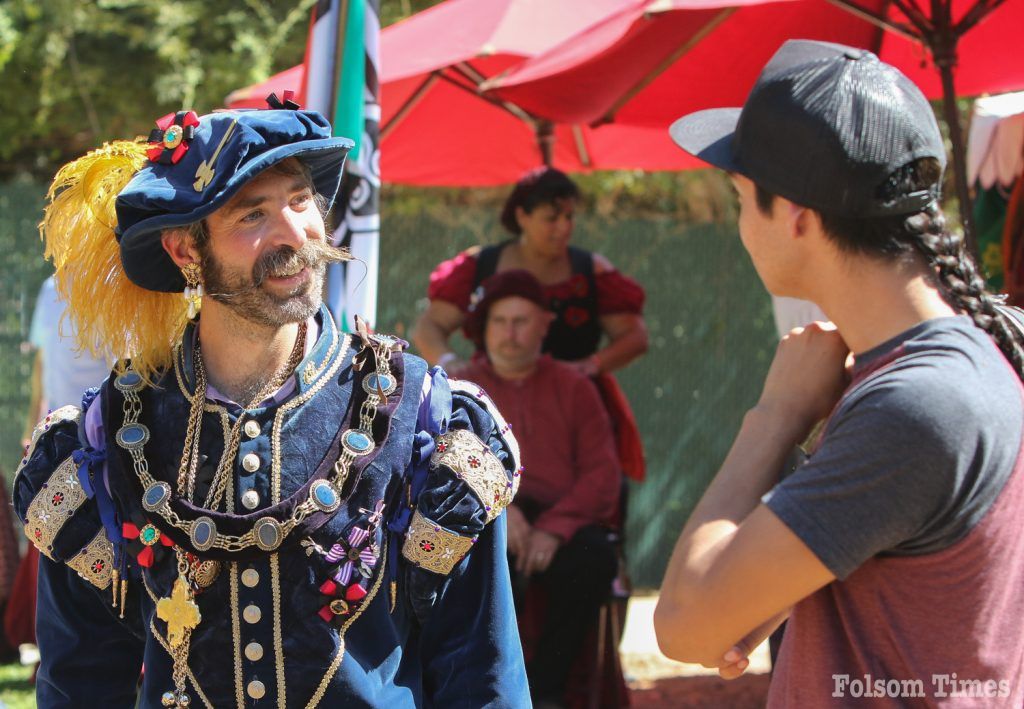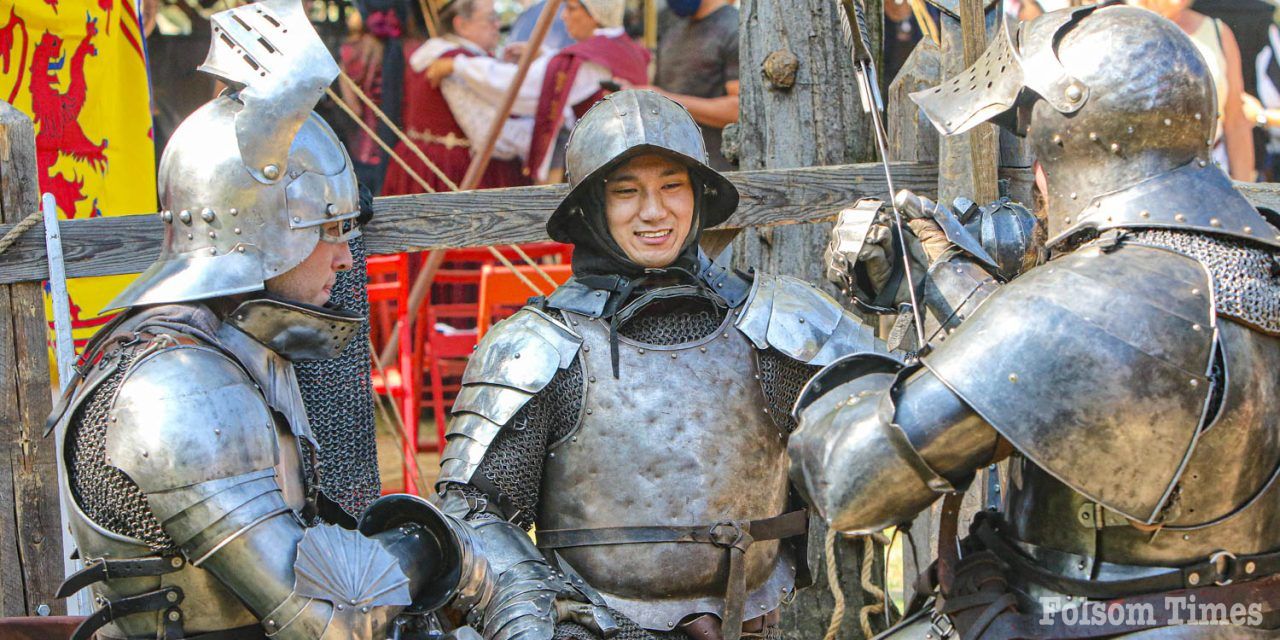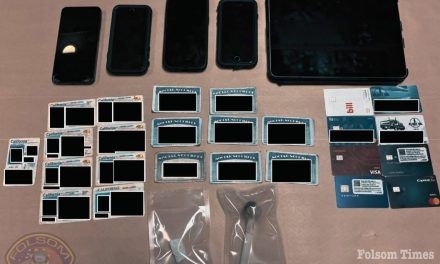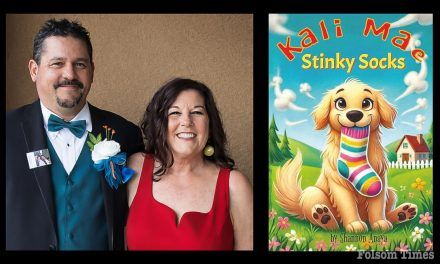In the past, Folsom’s Lion’s Park has been known to draw some 8000 spectators and participants each year when the annual Renaissance Fair makes its arrival in town. Such attendance is expected to be the case once again this Saturday and Sunday as the sights, sounds and experience depicting the era of Queen Elizabeth I descend upon the city as the iconic event returns.
Now surpassing 30 years of operation, the annual Folsom Renaissance Faire provides people of all ages a chance to have an interactive experience with musicians, jugglers and the ribaldry of actors drawing you deep into the magic of another period and time, according to officials of Renaissance Productions, organizers of the event and others in the region each year.
Over 800 costumed performers are expected on site over the two-day run to bring Shakespeare’s England to life with parades, pageants, reenactments and fun townsfolk, offering non-stop entertainment of a unique variety spread throughout the grounds. Whether you love a good Renaissance Faire or have never attended one, Folsom’s full-scale, interactive experience is not to be missed.
This weekend’s event celebrates the Elizabethan age and bring it to life the backdrop of a Renaissance English Village and is a chance for the young and old alike to take a step back in history. The result is always an experience unlike anything else, showcasing a range of entertaining, authentically historical presentations and costuming from ethnic backgrounds that can appeal to all tastes and ages.
The event is expected to portray Queen Elizabeth’s historical progress and Shakespeare’s development of a new play. In addition to the theatrics taking place, the event will be home to artisan crafts and wares, a variety of tasty food and drink, including the iconic giant turkey leg that is one of the many go to dining delights annually.
Jousting tournaments take place both days of the faire in the stadium. These events will feature talented riders in full suits of armor riding on their sturdy draft horses as they race forward and “take a stab” at being victorious.
The event is slated to be open at Folsom City Lions Park from 10 a.m. to 5 p.m. both Saturday and Sunday. New this year, tickets are only available by advance online purchase only and will not be sold at the gate, according to the City of Folsom Parks and Recreation Department.
The Friends of the Folsom Library will also be hosting its annual book sale at the Renaissance Faire on Saturday from 10-6 and Sunday from 10-5 in the Pavilion area.
Ticket prices are $14 for children 6 to 12; $17 for seniors, military and teens ages 11 to 17 and $20 for adults; and free for children under 6. Tickets can be purchased atwww.folsomfaire.comor simply click the event’s visual advertisement featured on the homepage ofwww.folsomtimes.com.

Engage in the drama and conversation
When one visits a Renaissance faire and begans to travel back in history may will find themselves experiencing a variety unique sights, sounds, and immersion. One of the things that are often new to spectators is the vocabulary spoken by the acting guilds as well as many attendees, some of which attend in costume as well. What you are hearing is indeed English, seasoned with words and phrases that are not often heard by the modern ear.
Part of the fun of the faire is the way that it draws you into the story and you just may want to speak the language. So here is a little “Renaissance talk 101,” that we have put together to help any first timers out at this weekend’s event.
Common words or terms found at the Renaissance Faire
My lord/My lady:My lord means “Mister,” and my lady means “Miss” or “Mrs.” For instance, your brother Jason becomes “my lord Jason,” and your cousin Ashley is “my lady Ashley.”
Master/Mistress:another set of terms for “Mister” and “Miss” or “Mrs.”
Good day/Good morrow:means “hello,” as in “Good day, my lady Ashley.”
Fare thee well:means “goodbye,” as in “Fare thee well, my lord Jason.”
Huzzah:means “Hurrah!” Used at jousts, shows, and the high points in court. (During court, only shout “huzzah” when invited to do so by officials of the court, as in “Three cheers for Lady Isabella,” or when everyone else is cheering.)
Thou/Thee:The words “thou” and “thee” both mean “you.” They’re just used differently. “Thou” is the subject of a sentence (the word that’s doing things), and “thee” is the object (the word that’s acted upon). For instance, “Thou art the man who will stand in line for turkey legs,” and “This turkey leg is for thee.”
Art:means “are.” “You are stuffing your face” becomes “Thou art feasting most enthusiastically.”
Aye:means “yes,” as in “Aye, that is indeed a man juggling cabbages …”
Nay:means “no,” as in “Nay, I hath no idea why he would want to do such manner of thing …”
Privy:the most common term used for the bathrooms. (Other terms that have at times been used include “the peasant potty” and “the royal flush.”)
Prithee:means “please.” (Do not confuse this word with “privy.”)
Gramercy/I thank thee: means “thank you.”
Wench:A wench is a particular type of woman, usually of the friendly or cuddly variety. Queens, princesses, and nuns are not wenches.
Bawdy:Bawdy is a term describing entertainment for a more adult audience. Songs or stories that are bawdy are suggestive but not usually blatant or raunchy, falling between a PG-13 and R rating at the movies. Bawdy shows may not be suited for children, although the better ones will probably go right over a child’s head.
Renaissance Lingo:Terms of Address
And now for the bonus terms, if you’d like to score serious style points, here are some of the official terms that are used to address people of rank. Remember and use these, and you are a true Renaissance scholar.
Your Majesty is the proper term when speaking to a king or queen. For instance, “Good day, your majesty …”
Your Highness is the form of address that is used when addressing a prince or princess, as in “Very well, Prince John.”
Sir is the term used to speak to or about a knight, as in “Sir Bedevere is hot in pursuit of the Questing Beast.”
All other people may be referred to as my lord or my lady.




